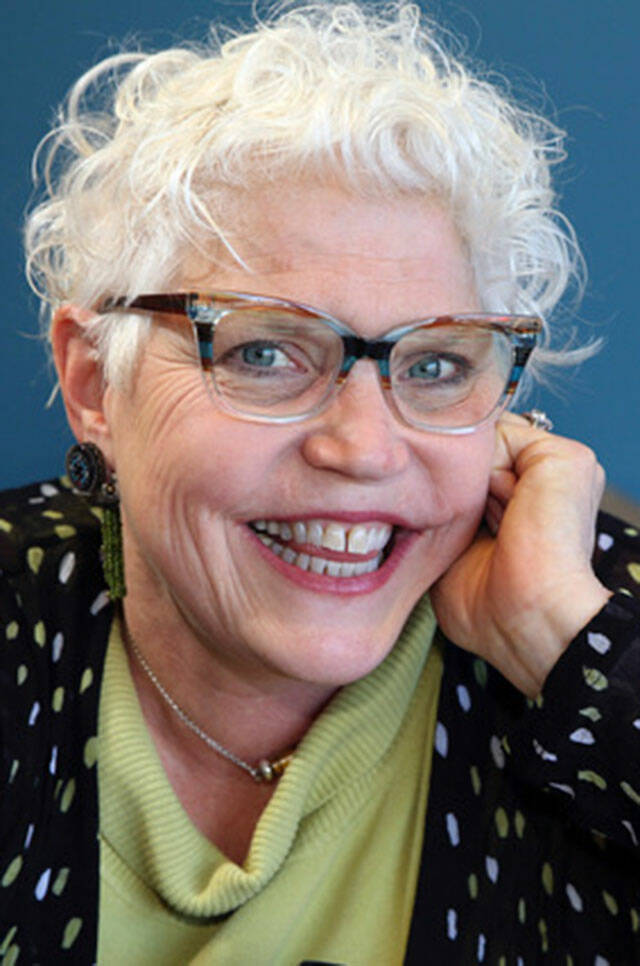By Kathy Coffey Solberg / Herald Forum
Have you heard the saying, don’t give up five minutes before the miracle? I have a particular challenge with that.
Be it having to force myself to mow that last section of the lawn, wash that last pan, or get through any transition to reach the light at the end of the tunnel. That ethereal designation of time. Especially time that has been shaped by covid; it has looked more like months and years instead of minutes.
I remember being by myself in Iceland driving through a long tunnel under the water. I know it was many kilometers. Many minutes passed that I was sure were more akin to hours. I was feeling quite claustrophobic and then I could see the actual light at the end of the tunnel! I was so relieved that I blew right through the toll station on the other side.
Brene Brown talks about the discomfort and awkwardness of being in the middle; the messy middle. In her book “Rising Strong,” she explains that the messy middle is crucial because it is where and how change happens.
And in these times defined by a pandemic, that messy middle has been feeling a bit like that tunnel in Iceland. Claustrophobic. Confining. Filled with the unknown.
Have you developed a comfort with these messy days?
Have you thought about how to use this time to prepare for what’s next?
How are you using those five minutes before the miracle?
And what is the miracle you are hoping to see in your version of what’s next?
As I consider these questions, I am reminded of a quote from Albert Einstein “There are only two ways to live your life. One is as though nothing is a miracle. The other is as if everything is.”
If we are choosing that second lens, and as we look toward the new year, it makes sense to look at where we choose to place our focus. Not resolutions or goals, but how we use our energy, time and attention in our everyday lives. How our seemingly small choices here in the messy middle impact the trajectory of our lives.
As residents of Snohomish County, we’re in a “purple” region, rather than red or blue. Our political values are mixed. And on the face of things, that may seem to set us up for conflict. Historically, we have had a way of coming together in the wake of disaster. Whether it’s flooding or wildfires locally, or hurricanes, tornados, or other natural disasters across the U.S., we put partisanship aside and pitch in. We see one another as worthy of help.
Meanwhile, I have not seen us unite in the wake of a pandemic disaster in the way I witnessed with the fires and recent tornadoes in the Midwest, for example. Sadly, since covid struck, indeed a systemic disaster in our world, partisan division, judgment and blatant acts of unkindness are common. Yes, there have also been powerful stories of working to assure access to vaccines. Yes, we have rallied to support first responders. Yes, many have supported their neighbor and family. But as this pandemic continues, the division is prominent; even normalized.
It has become difficult to risk reaching out to those we don’t know. Many have grown weary of trying to be engaged with others who simply do not wish them well. It becomes quite the challenge to actively listen to someone who does not care about your well being or maybe in fact is insulting you or dismissing your values. For our communities of color, any wariness that was already in place has reason to be amplified.
I have come to hear my children repeat the advice they were given when they were young: “Be bigger than the problem.” That in no way dismisses that it can be exhausting. Yet, when I do, I walk away feeling that I was my best self in the face of judgment and adversity.
As difficult as it may feel, perhaps this is a time to really lean into compassion. When we learn and know each other’s stories, when we really listen to one another, it is difficult not to come from a place of compassion. Stories are how we communicate our history, teach our children, and create our future. I believe we need to sit down in one big storytime to know our stories and hear each other’s narratives.
I also find that when I struggle to find understanding, it helps to come from a place of wonder.
And I’m wondering, can we see one another as worthy during this pandemic? Can we see each other as worthy without any disaster at all? Can we see one another as humans who disagree rather than as adversaries or enemies?
I’m hoping that’s one of the coming miracles in what’s next.
Kathy Coffey Solberg is executive director of Leadership Snohomish County. She brings together professionals and community members to examine critical issues affecting Snohomish County to create a thriving community. To learn more, go to leadershipsc.org.
Talk to us
> Give us your news tips.
> Send us a letter to the editor.
> More Herald contact information.

























